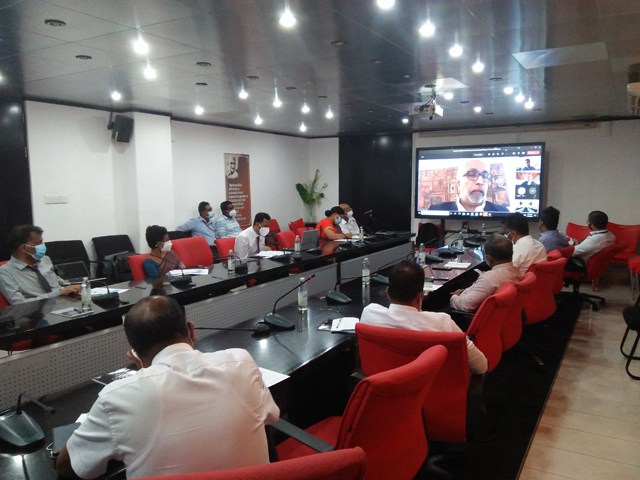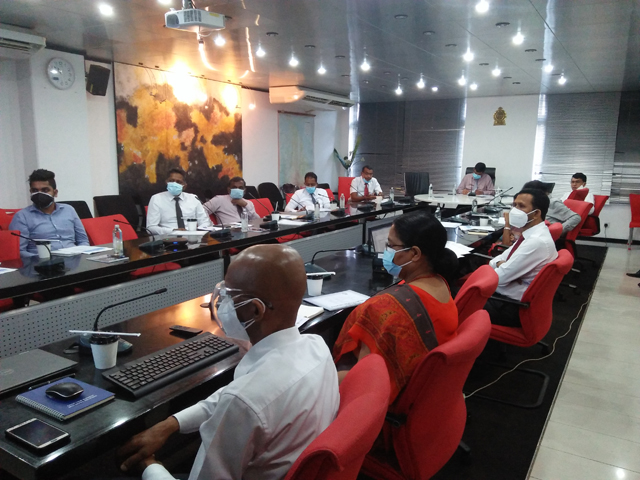UN-Habitat Supports Government of Sri Lanka to Mainstream Resource Efficient Building Construction
Colombo, Sri Lanka, 23rd November 2021: UN-Habitat in collaboration with United Nations Environment Programme (UNEP) and United Nations Office for Project Services (UNOPS), supported by the One Planet Network Multi Partner Trust Fund for SDG 12, launched the first multi-stakeholder workshop sponsored by the Government of Sri Lanka to mainstream resource efficiency in the housing, building and construction sector of the country through the project “SDG12 Resource Efficient Housing”.
The objectives of the project include: supporting governments in transforming their buildings and construction sector to be a resource efficient, low carbon and climate resilient sector, through coherent policy support and results-focused programming; raising awareness and strengthening the capacity of national stakeholders with an emphasis on material efficiency and contributing to develop and strengthen the productive links for the efficient use of resources from a circular economy perspective. The main outputs expected include the formulation of a roadmap to mainstream resource efficient construction; and the co-design of a toolkit to assess the sustainability of housing, building and construction projects. A participatory approach through an experts’ focus group will be adopted to deliver project outputs with the active participation and contribution of a Multi-Stakeholder Expert Group established for the project.
The inaugural meeting of the project convened by the State Ministry of Rural Housing and Construction and Building Materials Industries, was held on 23rd November 2021 at the Ministry Auditorium, Sethsiripaya, Battaramulla with the participation of over 50 stakeholders representing Government ministries and institutions, professional bodies and trade associations, academia, LNGOs, INGOs and International Organisations. The objectives of the inaugural meeting were to launch the project; and create awareness among the experts’ group that will focus in raising awareness and strengthening the sector.
In his opening address the Secretary of the State Ministry of Rural Housing and Construction and Building Materials Industries Eng. Keerthi Ranjith Abeysirwardena stated that, “In Sri Lanka, the construction sector is the fourth largest sector of the economy, contributing an average of 6% – 7% of the Gross Domestic Product (GDP) of the country during the last decade. Most construction materials used in Sri Lanka are derived from non-renewable natural resources and harvesting of renewable natural resources mostly in an unsustainable manner. Moreover, a high percentage of building materials and equipment are imported, thereby further increasing the economic and environmental impact of the sector. With the increasing population and urbanisation, the demand for housing, buildings and infrastructure is growing exponentially. Therefore, mainstreaming resource efficiency in housing, buildings and construction sector is key to achieving targets of SDG 12, NDCs (Nationally Determined Contributions) and objectives of “Vistas of Prosperity and Splendor” the national development strategic framework.”


